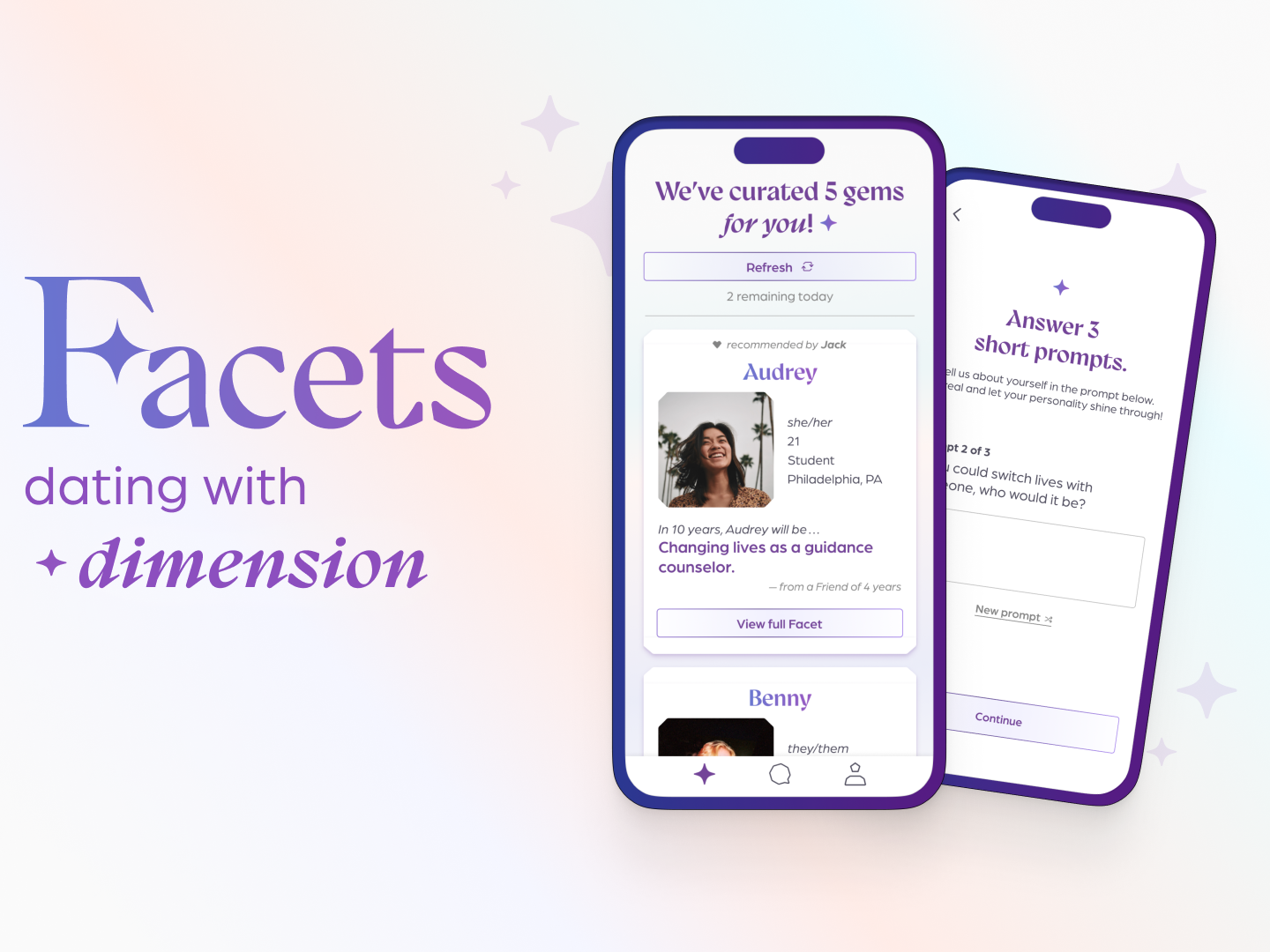Overview
Facets isn’t your typical dating app—it’s a platform committed to showcasing how people shine, challenging traditional dating app norms. Users can invite friends to contribute to their profiles, offering a multifaceted view of their personality. This fosters richer connections and, coupled with our daily profile limit and rejection-free model, transforms the dating experience by promoting genuine interactions.
Team:
- Jill Tracy: Product Manager
- Nikki Sandeep: UX Researcher
- Durando Angiulo: Dev Lead
- Avani Yatavelli: UI Designer
- Sydney Harvey: Content Manager
The Problem
Today’s dating apps are failing users. Instead of fostering genuine connections, they encourage a toxic culture of competition, ghosting, and endless scrolling. Users are reduced to mere profiles, leading to users feeling disposable and self-conscious. In a competition to be the most desirable, true connections are lost.
Our team recognized these flaws and set out to create a solution. We wanted to provide a platform tailored for college-aged individuals seeking meaningful, long-lasting relationships. Through conversations and interviews with peers, we learned firsthand how existing apps have left many feeling disillusioned and disconnected, perpetuating a cycle of disappointment and self-doubt.
Objective
How might we…
Create a platform that encourages mindful, genuine, and successful connection?
Preliminary Research
Preliminary research findings from an unmoderated anonymous survey targeting dating app users aged 18-23 shed light on the experiences and perceptions within this demographic. Out of 17 respondents, 50% described themselves as very unsuccessful on dating apps, highlighting the challenges many face in finding meaningful connections. Key factors identified for success included profile quality, communication skills, and the unpredictable element of timing and luck. Conversely, users cited challenges such as the quality and diversity of the user base, communication barriers, and dissatisfaction with app features and algorithms.

When asked about their comfort level with friends creating their dating profile, most respondents expressed hesitation, indicating a delicate balance between interest and apprehension. This finding was important for understanding how much a user’s friends should impact their profile.
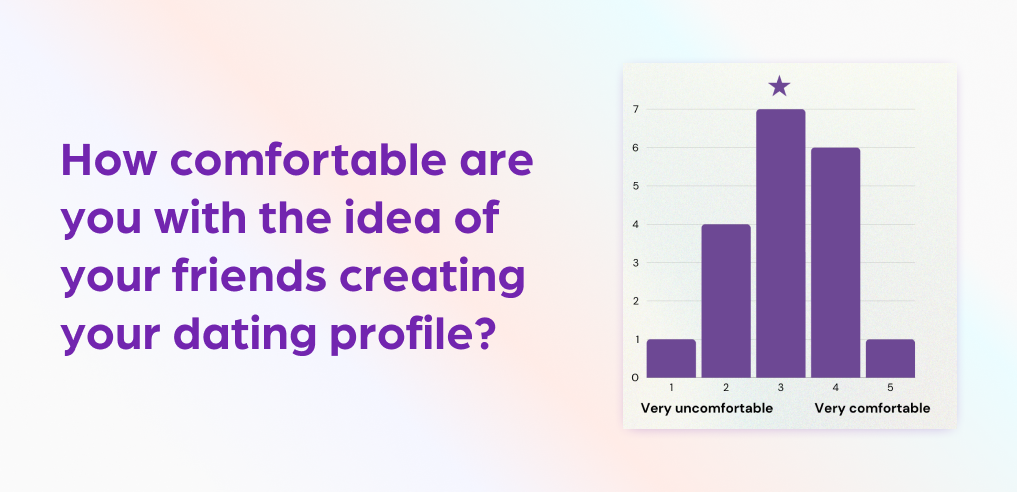
Psychology insights
Additionally, insights from psychology research underscored the negative impact of online dating, including phenomena such as ghosting, fading, and orbiting, exacerbated by the fast-paced nature of modern dating apps and the overwhelming abundance of choices generated by algorithms. These findings highlight the pressing need for innovative solutions that address the shortcomings of current dating platforms while prioritizing user experience and well-being.
Competitor analysis
Analyzing competitors such as Hinge, Blindmate, and Tinder unveiled both strengths and weaknesses within the saturated dating app market. While Hinge stands out for fostering long-term connections and promoting positive feelings among users, Blindmate distinguishes itself by granting friends full control over profile visibility. Additionally, Blindmate’s incorporation of character attributes derived from quizzes and a gradual photo reveal feature during chats prompted us to reconsider the extent of friend involvement within our own platform.
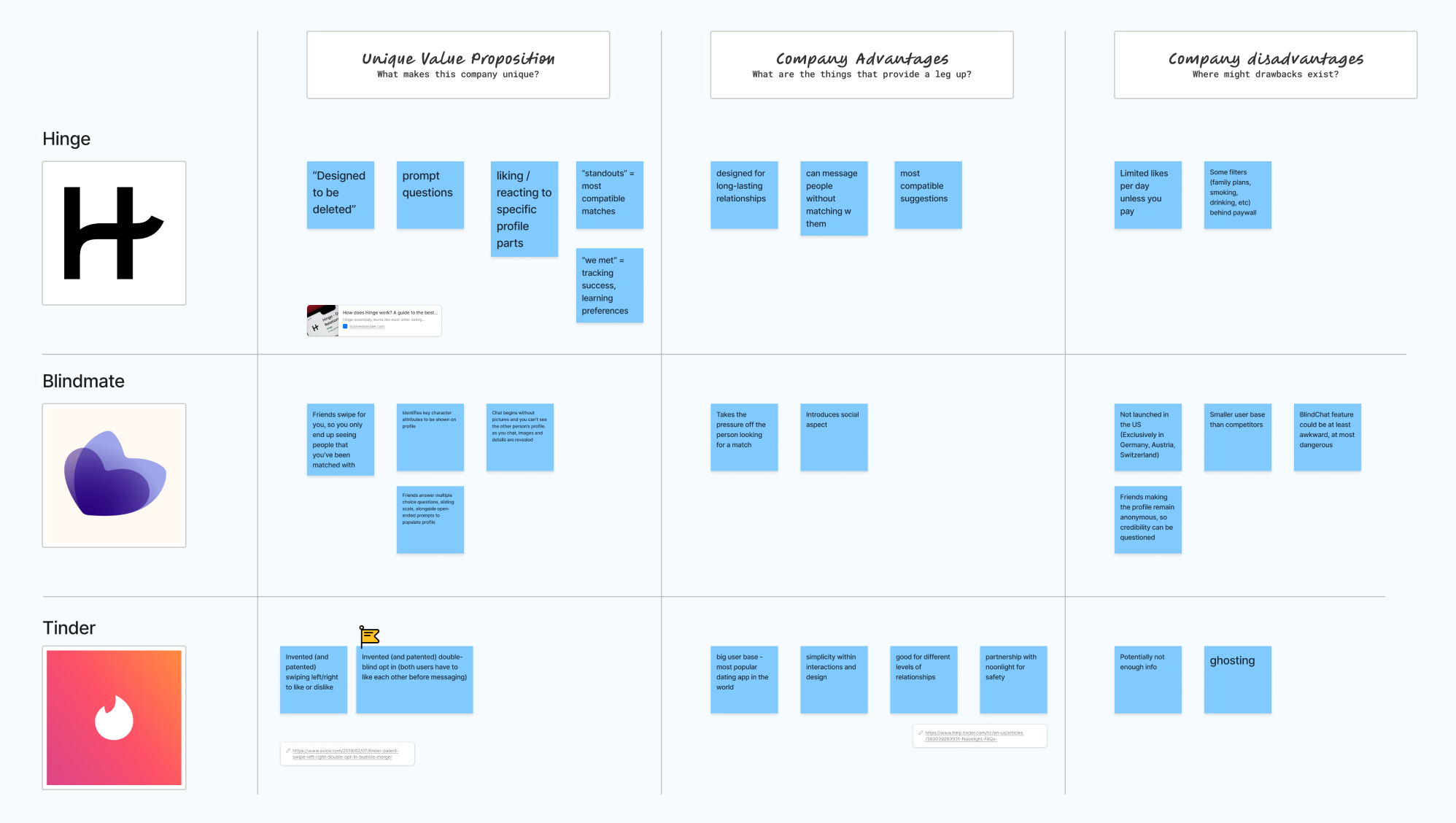
User personas
Drawing from this research, we created three personas to encapsulate the user experience as understood from our findings. These personas mirror the challenges voiced by survey participants, encompassing worries about safety, struggles initiating conversations, and apprehensions regarding potential partners’ commitment to serious relationships.
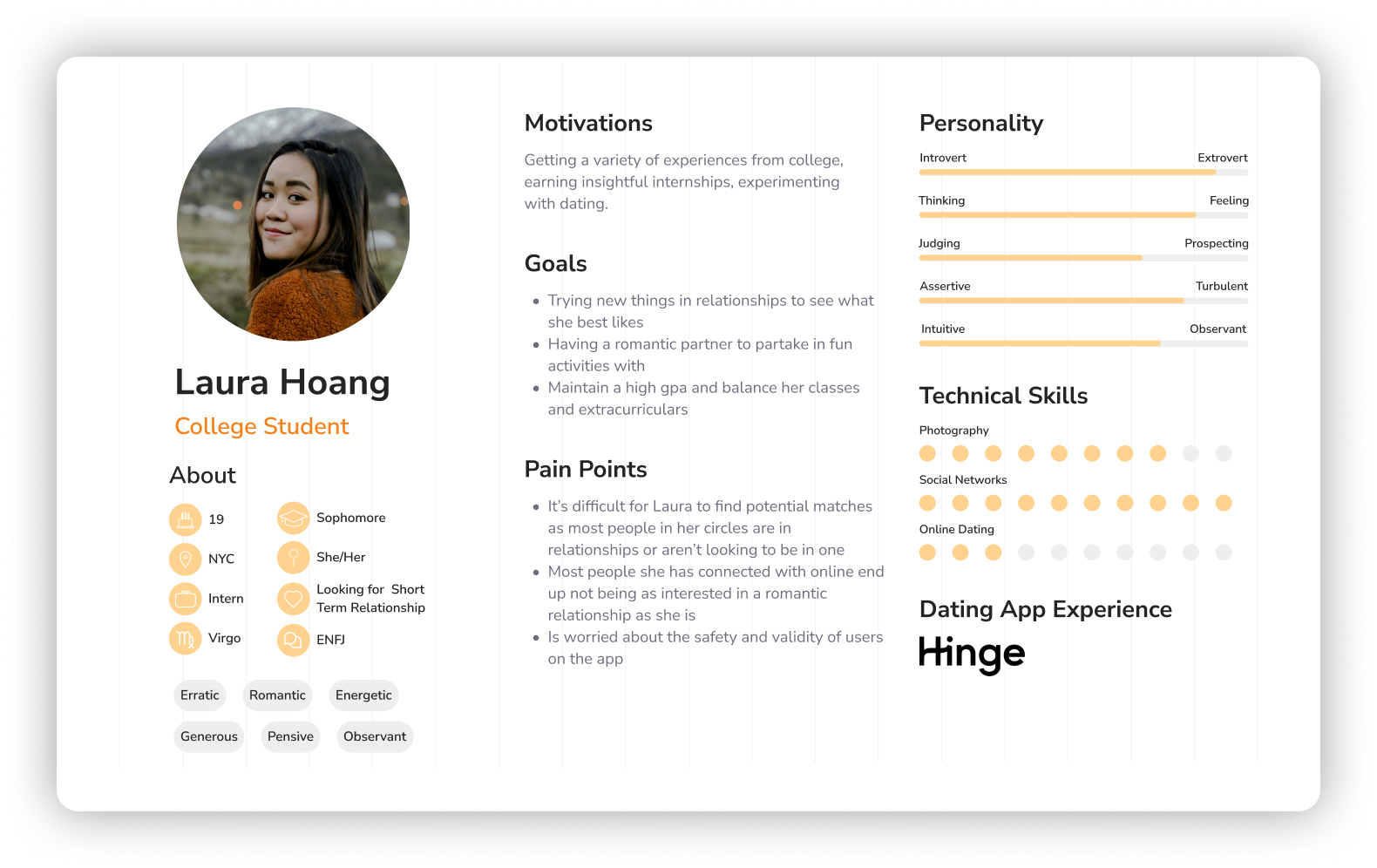
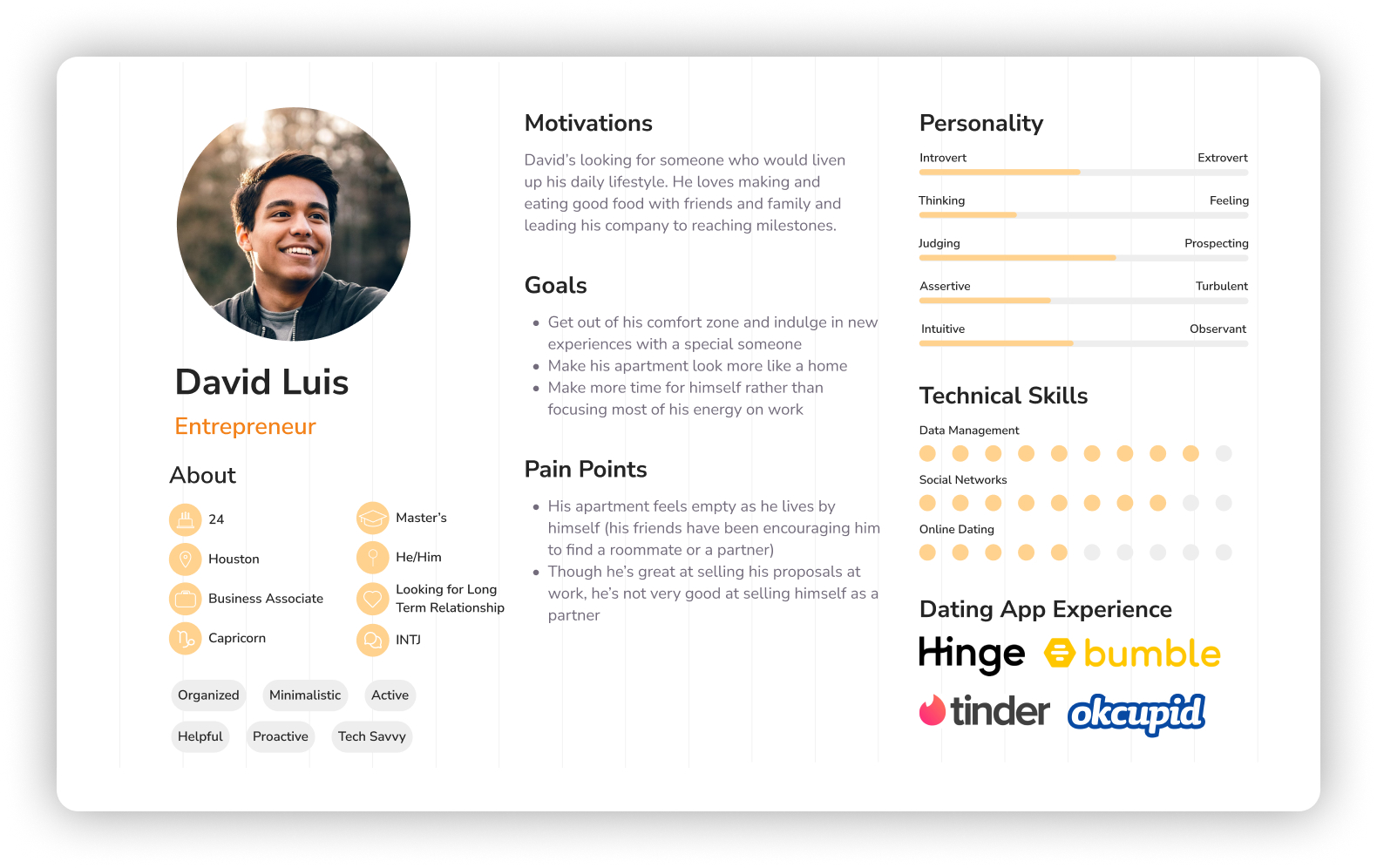
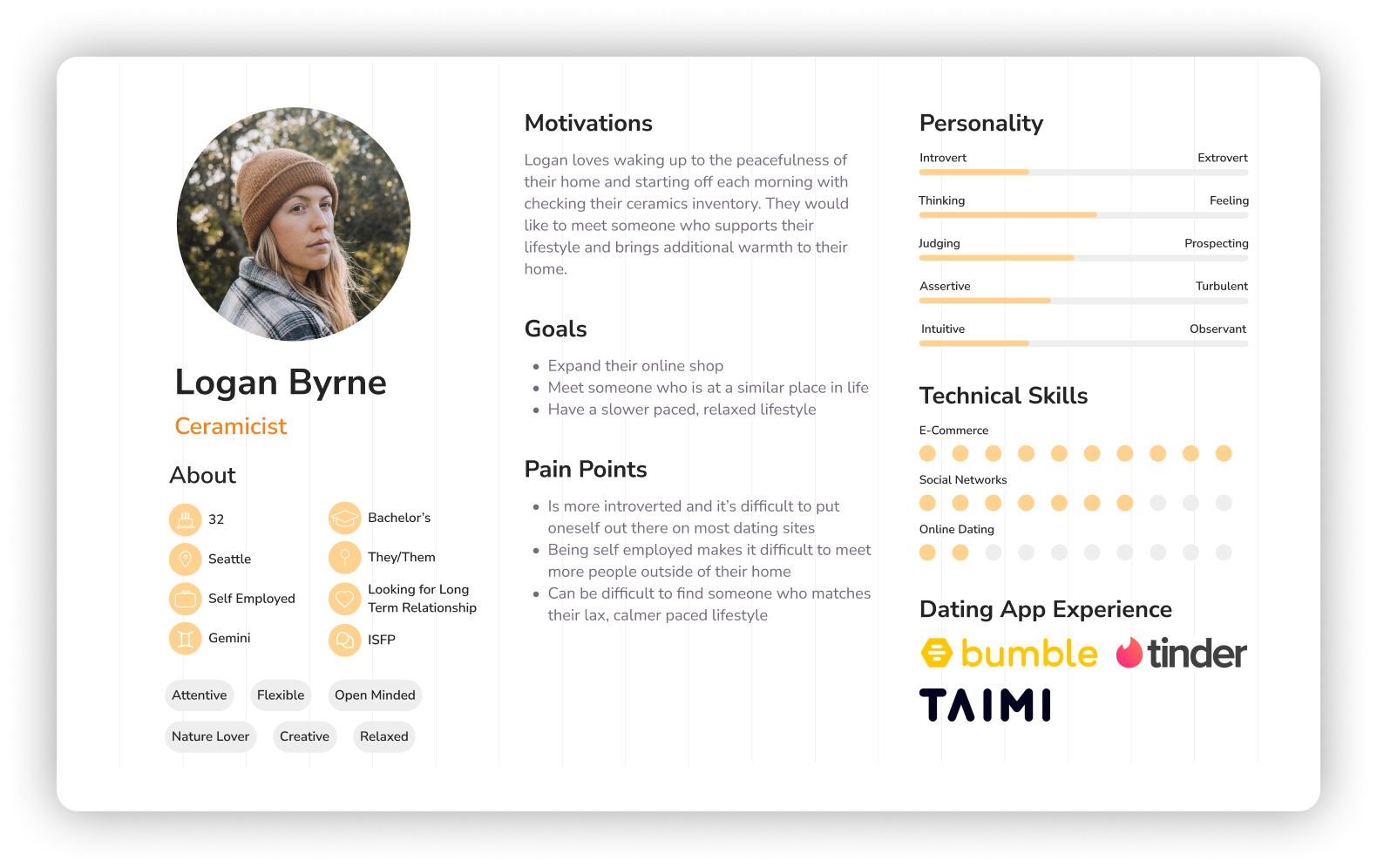
Key takeaways
Based on this research, Facets should:
- Encourage selectivity and intentional decision-making
- Strike a balance between friend involvement and autonomy
- Create a safe space for all users
Design & Testing Concepts
To begin, we sketched out ideas to brainstorm and identify design opportunities, using similarities between ideas as foundational elements going forward.

Lo-fi prototype
For low fidelity prototype flows, we focused on account creation, messaging, and rejecting users. We were most interested in seeing how people responded to Facet prompts and what a Facet represented in their mental model.
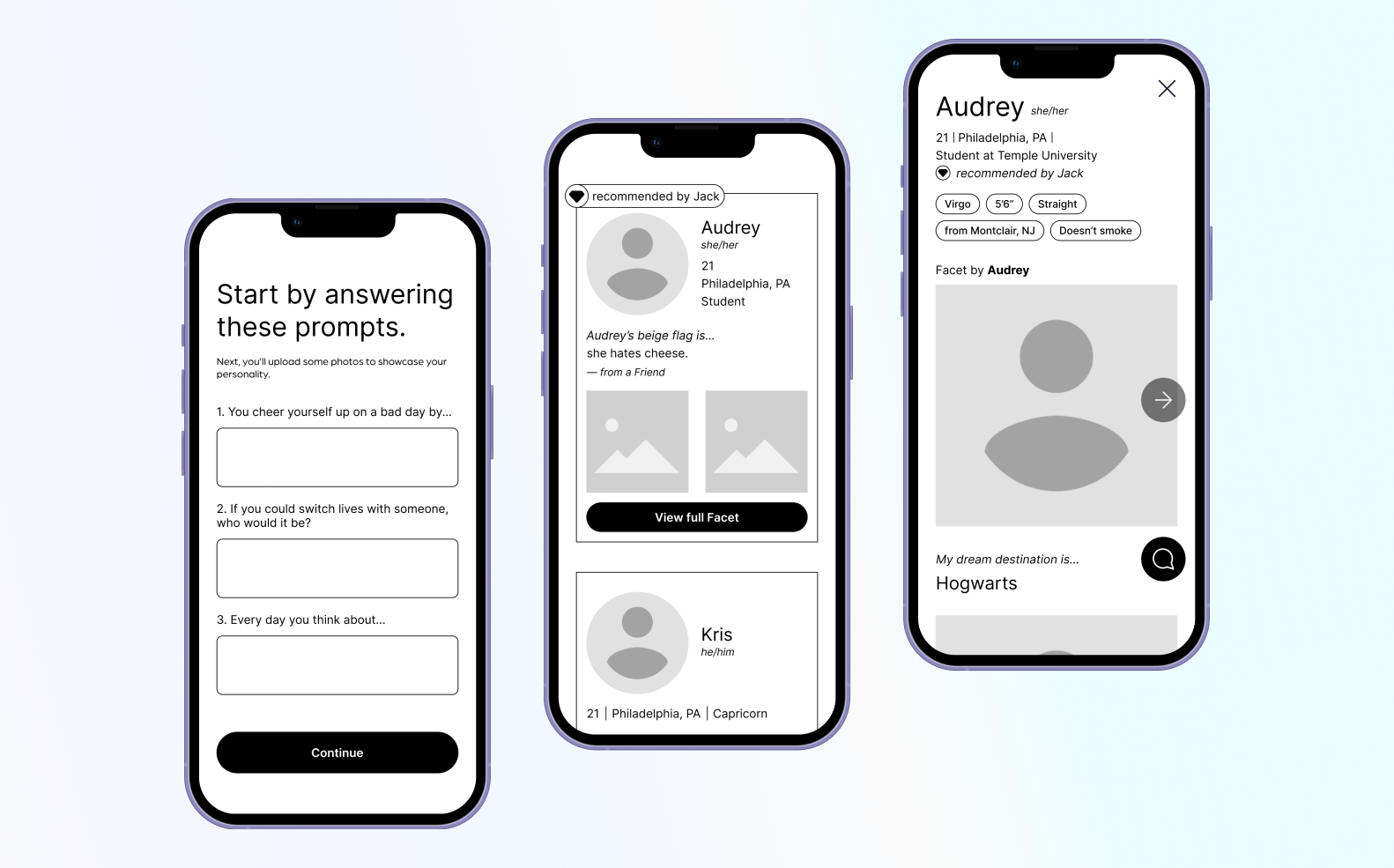
Mid-fi prototype
Here we introduced feed refreshing with 5 profiles shown at a time, leading to our no-rejection model. We also included better indicators of Facet columns on the sides. Users had questions about safety and recommendations, so we introduced profile actions to answer these questions.
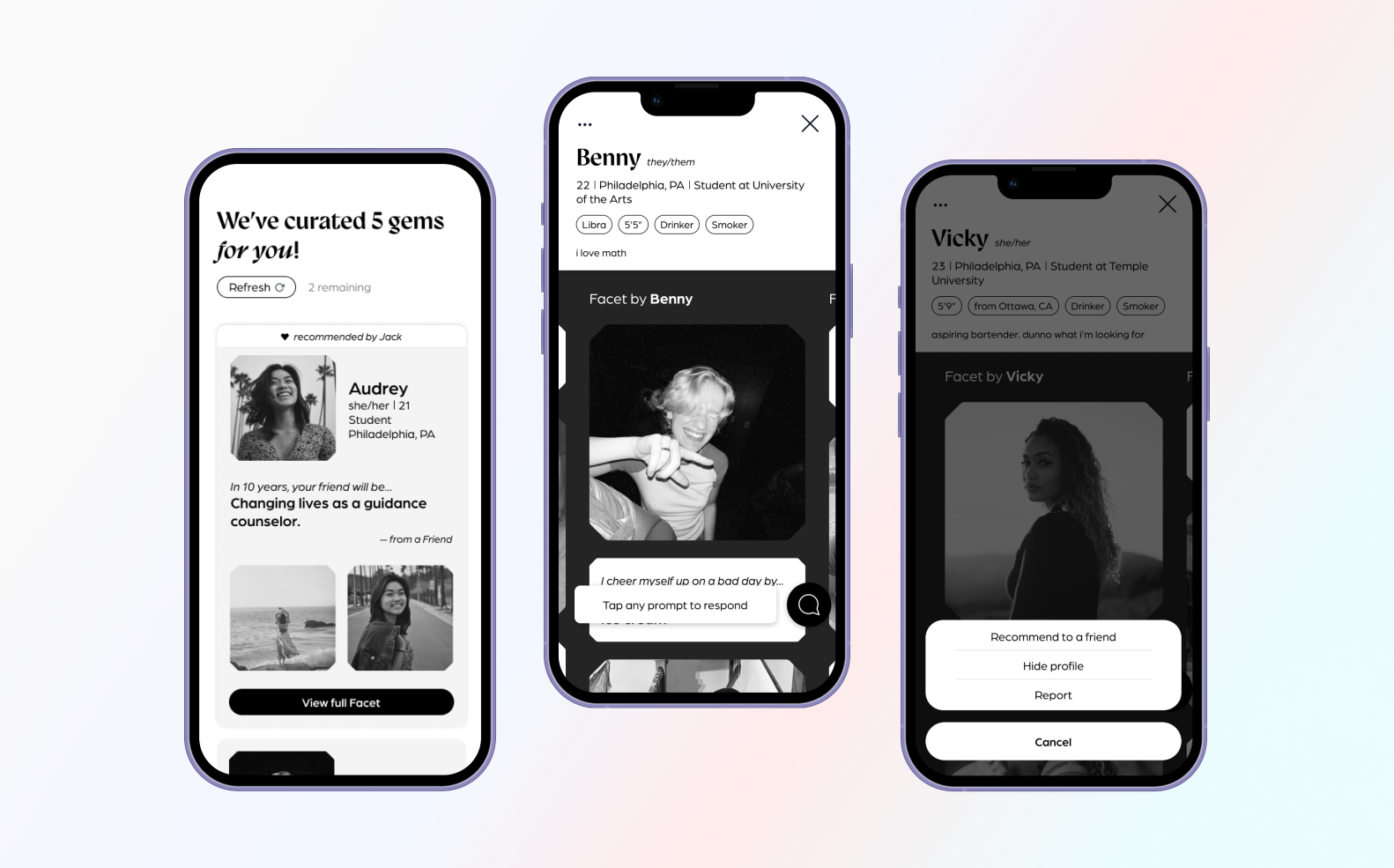
Hi-fi prototype
In our hi-fi prototype, we added color and continued refining task flows and exploring features.
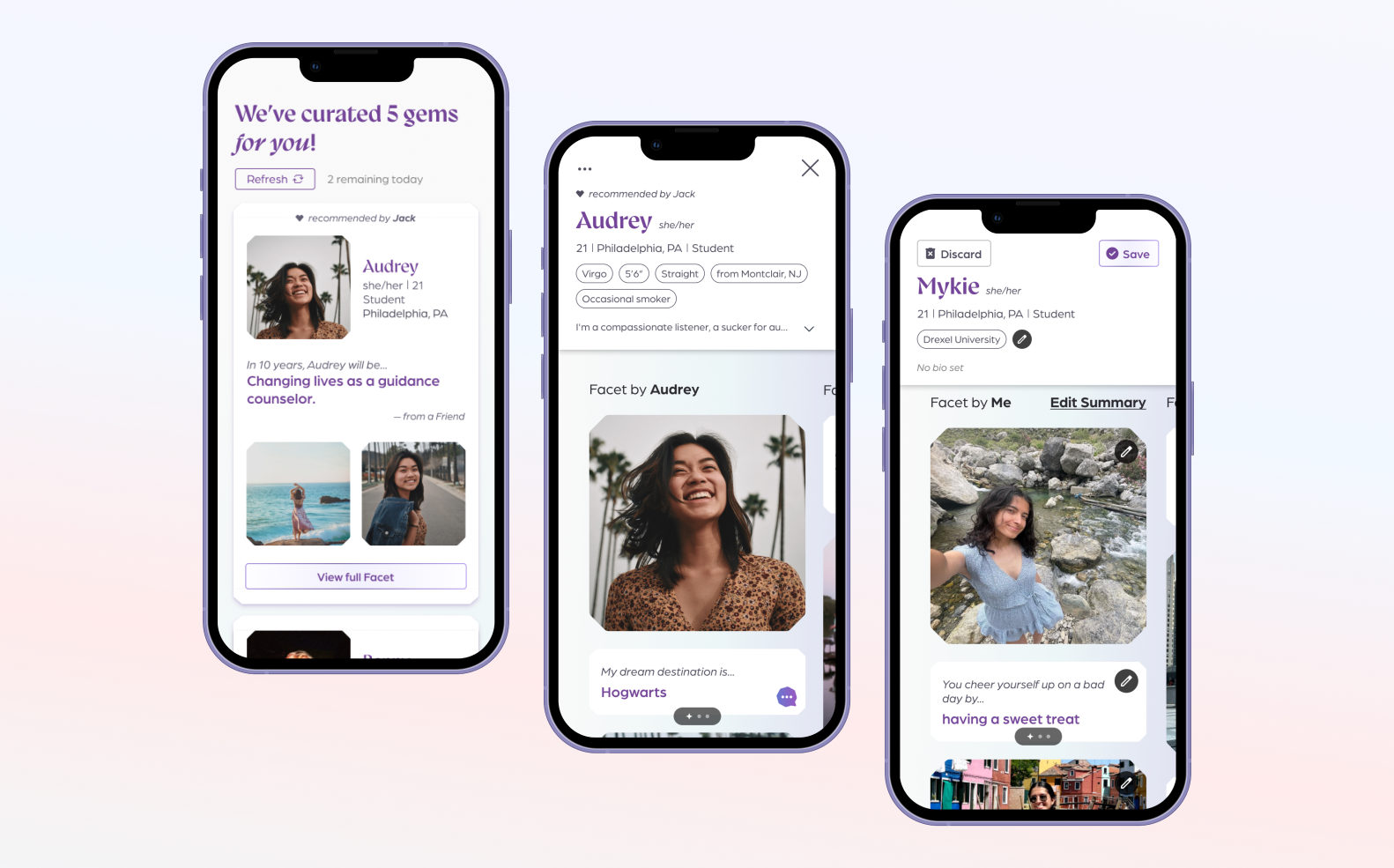
After this round of testing, we completed a final refinement in preparation for development work.
Development
This app was developed as a web app using React. Our dev lead was able to start working on backend functionality before the design was finalized, and two of our team members jumped in after the design iterations to work on front-end styling.
Solution
Our product is a functional web app where users can create a profile, explore the feed, message users, and edit their profile.
Demo: Account creation
Demo: Exploring the feed
Demo: Polishing profile
Results
Overall, we achieved our goal of creating a high-fidelity, functional web app. Facets establishes new patterns in the saturated dating app market, encouraging users to feel uplifted and excited to put themselves out there.
If we had more time and resources, we would:
- Research and develop an algorithm to cater profiles to our user’s needs
- Add microinteractions and animations to enhance the experience of using Facets
- Talk to subject matter experts to leverage their insights on the world of dating apps

